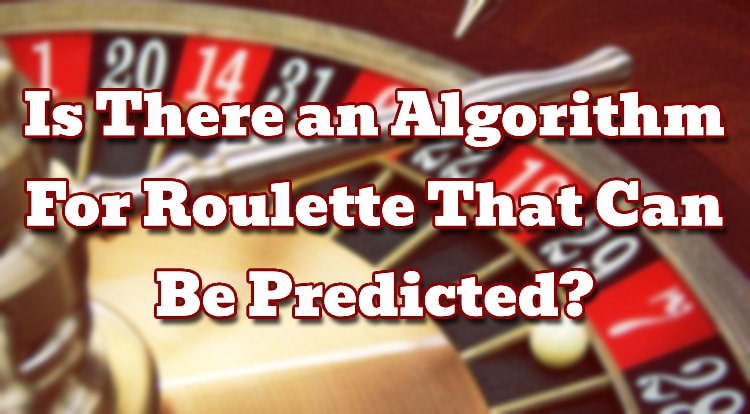Do Roulette Prediction Devices Work?
Roulette is a popular casino game that combines chance with the experience of watching the wheel spin. In spite of it being a game of chance, many wonder whether there are any ways to try and predict the result.
There are claims that certain devices can predict where the ball will land. These devices are often discussed among gamblers, raising questions about whether they truly work or if they are simply a myth.
This blog post will explore the claims surrounding roulette prediction devices and uncover the truth behind them. Players will gain a better understanding of how these devices are supposed to operate and whether they can truly deliver on their promises.
How Does Roulette Work?
Roulette is a popular game found in many casinos. It features a wheel with numbered pockets, usually ranging from 0 to 36. In American roulette, there is a double zero as well.
The numbers on the wheel alternate between red and black, while the zeroes are marked in green. Players place bets on where they believe the ball will land when the wheel stops spinning.
After bets are placed, the dealer, known as the croupier, spins the wheel in one direction and rolls a small ball in the opposite direction. As the ball slows down, it eventually lands in one of the numbered pockets.
Bets can be placed on a specific number or on groups of numbers. There are various types of bets, including those on colours, odds or evens, or ranges of numbers. Each type of bet offers different odds and potential payouts.
Once the ball comes to a stop, the croupier announces the winning number. Any players whose bets were successful are then awarded their winnings.
Is It Possible To Predict Roulette?
The idea of predicting roulette outcomes may be quite appealing. However, the very nature of roulette is based on randomness and chance, making it impossible to consistently predict where the ball will settle.
The design of the roulette wheel aims to ensure fairness. Each spin is independent of previous results. This means that the outcome of each spin does not affect the next.
Some players may try to find patterns or trends in the results. However, because each spin is separate, there are no patterns to find, so players cannot genuinely predict future outcomes.
While there are theories and devices that claim to predict where the ball will land, the consistent unpredictability of the game remains a challenge. The randomness is why it remains a game of chance rather than skill. Understanding this foundation is important when evaluating any claims about predicting results.
Can AI Predict Roulette Numbers?
The rapid development of technology has brought many new ideas to gambling, including the use of Artificial Intelligence (AI). Some believe AI could unlock the secrets of predicting roulette outcomes.
It is important to remember, though, that even with advanced technology, roulette remains a game of chance. The randomness of each spin means that even the most powerful AI cannot predict future results with certainty.
AI may analyse patterns and data from past spins. However, because each spin is independent, relying on AI for predictions is futile. No AI can overcome the fundamental idea of roulette being a random event.
Also, it is important to note that attempting to use AI to predict roulette numbers is considered cheating and may lead to severe consequences. Casinos have strict policies against using external software or tools to try to gain an unfair advantage. Players caught attempting to manipulate outcomes may face permanent account bans, loss of winnings, or even legal action.
Rather than seeking unfair methods, players should always engage in responsible gambling, accepting that roulette is based on chance and outcomes cannot be predicted.
Is There a Trick To Winning Roulette?
Roulette is a game that relies heavily on chance, with each spin being entirely random. This randomness means that no specific trick can guarantee a win every time a player takes part.
While some may believe in systems or strategies that claim to improve the odds, it is essential to recognise that these do not change the game’s fundamental nature. The house edge remains a constant part of roulette, ensuring that the casino maintains an advantage over time.
Players might choose to practise certain betting patterns, like spreading their bets or sticking to outside bets such as red or black. However, these approaches have more to do with player preference rather than securing a definite victory.
What Is The Best Roulette Strategy?
As mentioned previously, roulette is a game of chance, meaning no strategy can guarantee a win. Each spin is independent, and the outcome is always random.
Some players use strategies to manage their bets. Some may follow betting systems like the Martingale, Fibonacci, or D’Alembert, which are designed to manage bet amounts based on losses and wins in different ways. However, these do not change the fundamental odds of the game and have everything to do with player preference.
The choice of how to play is a personal one. A strategy may help with structuring bets and managing expectations, but it does not influence results. Understanding this can help players make informed decisions and engage with the game responsibly.
*The information provided in this blog is intended for educational purposes and should not be construed as betting advice or a guarantee of success. Always gamble responsibly.





